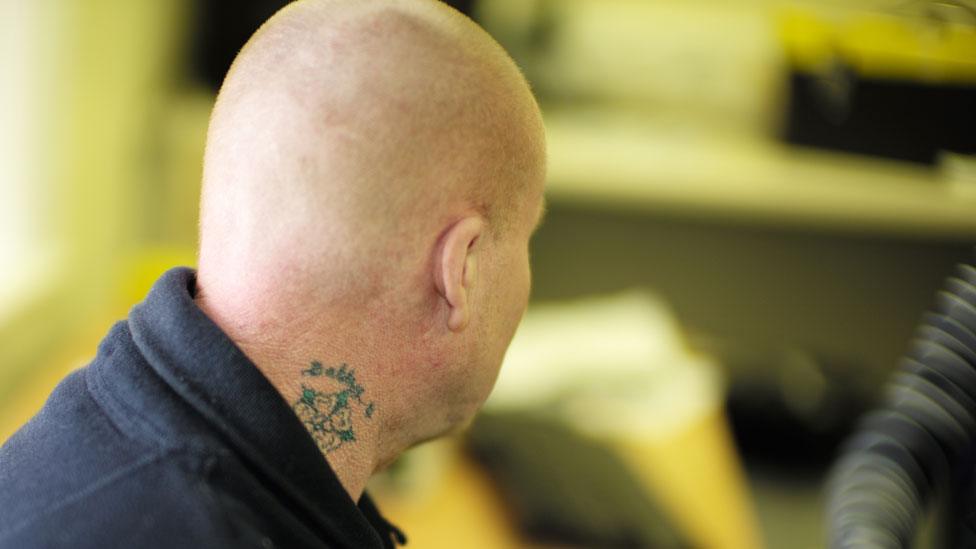My kidneys have failed, and I know my kids face the same fate
- Published
Mandy was born with a disease that caused both her kidneys to fail
After years of pain and dialysis, she has just had a kidney transplant
Her mother, brother and two sisters have the same condition
Mandy found out her two youngest children have inherited the disease
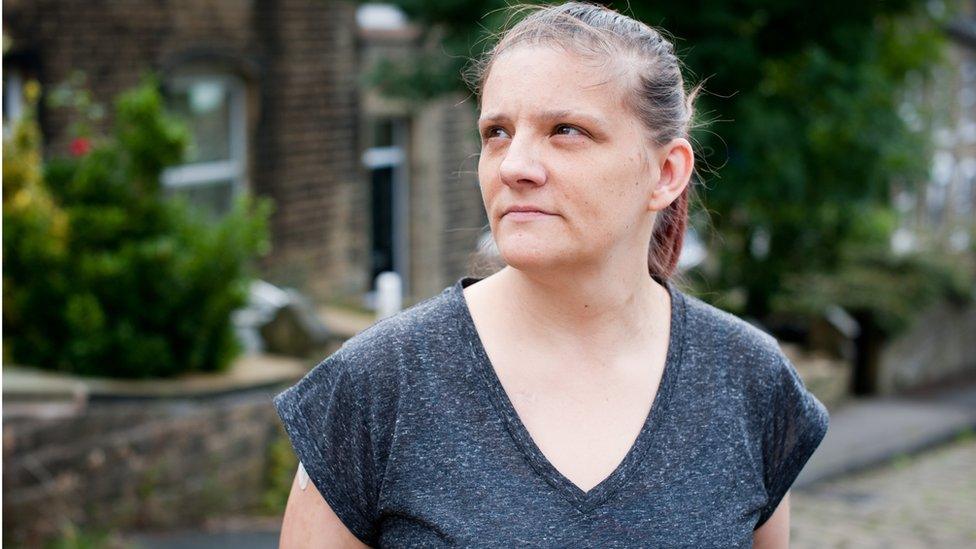
Mandy Littlewood is sitting on a park bench with her husband John, their two small dogs are chasing each other up and down the sloping field.
"The kids love to come down and play here as soon as they get home from school," Mandy says.
"It's so convenient as it's just down the road from our house."
But she knows the days of playing carefree in the park are numbered. Millie, 10 and Zac, nine, have inherited a life-threatening disease from her.
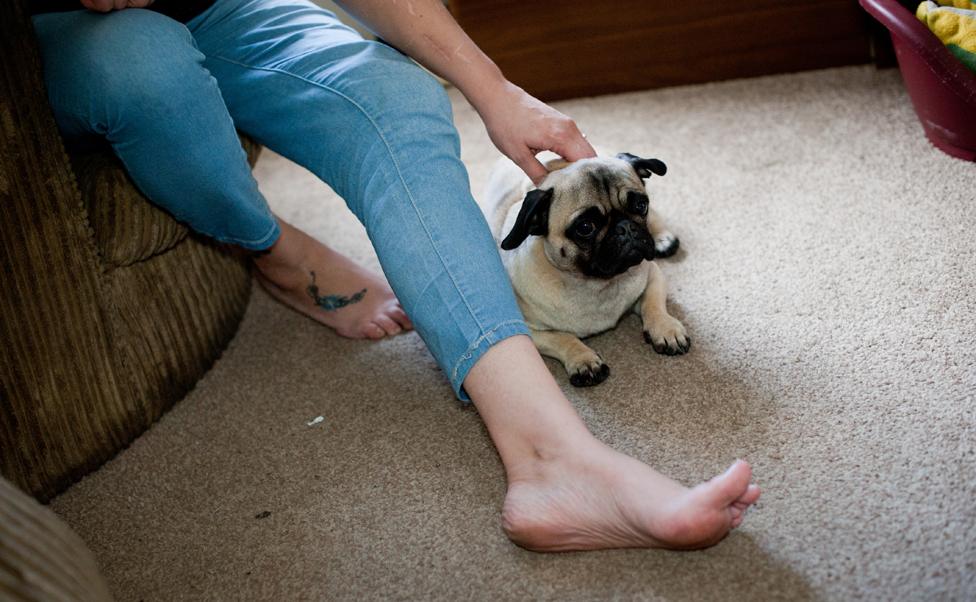
Mandy with one of two dogs who provide much needed distraction
Mandy has polycystic kidney disease. It causes fluid-filled cysts to grow in the kidneys over several years. Symptoms, such as chronic pain in the abdomen and urinary tract infections, usually appear between the ages of 30 and 40 but can appear as early as childhood. Sufferers are placed on dialysis and eventually need an organ transplant.
The disease is hereditary and affects Mandy's mother, her sister and two or her aunts and uncles. Her grandmother died from the disease. Someone affected by the condition has a 50% chance of passing it on to their children.
"I've never felt angry about having it as it isn't anyone's fault - it's just something that happens."

My town, my NHS
As winter approaches the NHS faces its busiest time. This week the BBC is focusing on one town - Huddersfield - to look into people's experiences when getting healthcare.
If you live in Huddersfield, are there any particular issues you think we should pursue? Are there major successes or failures? Use the form below to get in touch:

Mandy didn't realise she could pass the condition on when she had her first son, Callum, at 19. However she and her husband John knew of the risk before having Millie and Zac.
"John and I had discussed the possibility of passing on the condition but we knew we wanted kids together. I had hoped they would have been spared like my youngest sister. I felt horrendous and so guilty when they were diagnosed.
"I'm glad we got them tested though because now we know to watch their blood pressure and be extra careful if they get infections."
Mandy says the condition only really started to impact on her life six years ago when she was 33.
"I had sharp stabbing pains in my back and side almost constantly. It was too much to cope with and I was prescribed anti-depressants to help with my mood."
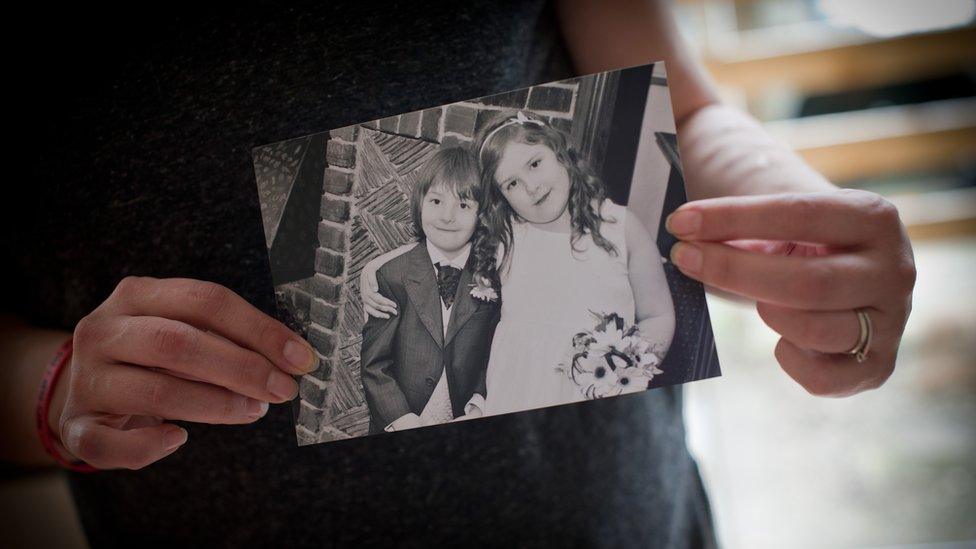
Mandy holds a picture of her son Zac and daughter Millie, who also have polycystic kidney disease
She had her first kidney removed in 2011 and was placed on the transplant list in 2012. A year later she was placed on dialysis, which left her feeling exhausted.
"It's taken over my life," she says.
"I had to stop working as a learning disability nurse in 2013 and then stop driving at the start of this year. I didn't like to make plans to go out, in case I had to cancel because I felt rubbish."
Mandy and her family live in Huddersfield - two taxis and a train ride from specialist kidney services in Leeds. It's an issue many people who live far from a larger teaching hospital face.
"John gave up his job as a floorer to take care of me and the kids so we have struggled financially. It costs £30 in taxis and train fare for John to come with me to a hospital appointment."
The NHS first provided patient transport to take Mandy to Leeds for dialysis as it was the closest place with a spot available. She later received dialysis at Wakefield.
"The travel was always a nightmare," says Mandy.
"The patient transport turned the four-hour session into a day-long ordeal. I would be picked up hours before my appointment and then have to wait around after it had finished. As I went three times a week I felt like I was spending my life in hospital."
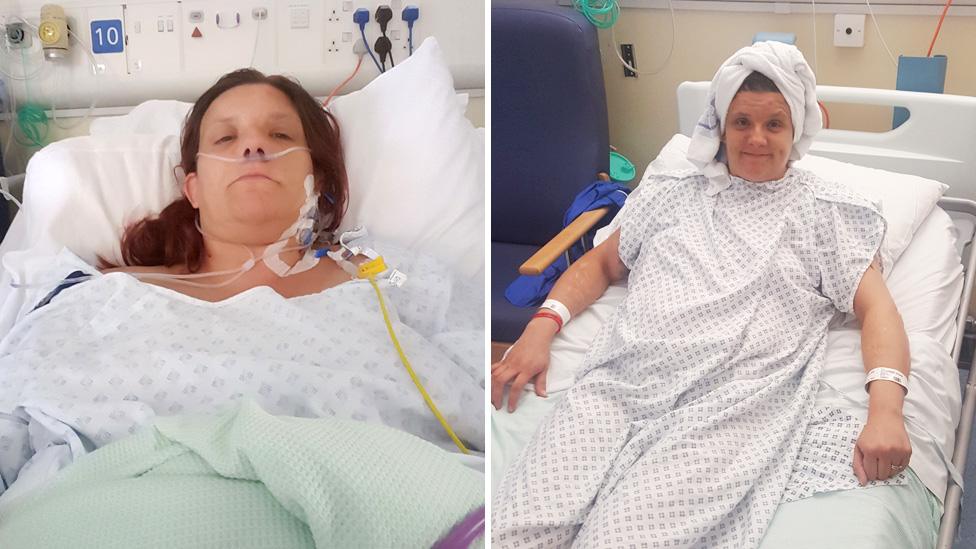
Mandy in hospital shortly after surgery (left) and a few days later
After two years a spot opened up at the local satellite dialysis unit in Huddersfield. It was a great relief to Mandy. Dialysis left her feeling sick and she was given meal replacements after losing a lot of weight.
"Everything tasted metallic. The kids would come in for their tea and I would have forgotten about it because I wasn't hungry."
This summer there were 141 people in West Yorkshire and 5,066 in the UK waiting for a kidney-only transplant. Waiting times vary due to clinical need and matching between patient and donor. The average waiting time for a kidney-only transplant is 944 days.
In July this year, Mandy finally got the call that there was a possible match.
"They rang early in the morning. I had to wake John and the kids and called my mum to come and take care of them while we rushed to Leeds General Hospital."
The mother-of-three was told she would have a long wait when she arrived at hospital because it was a 'heart-beating' donor. She was then left for hours in a small TV room in St James' Hospital in Leeds.
"I know they were busy but I found that very upsetting. I later found out a lot about my donor's health problems in case I didn't want the organ. It made me feel very sad for him. He had given me such a gift."

What is polycystic kidney disease?
About 70,000 adults and children in the UK have Polycystic Kidney Disease
It causes fluid-filled cysts to grow and multiply in both kidneys, eventually causing them to fail
More than half of sufferers will have kidney failure by the time they are 60 years old
High-blood pressure, pain and urinary tract infections are common symptoms
The form Mandy has is the world's most common inherited life-threatening condition
For more information visit the PKD charity website, external

She was surprised by how low she felt after having the life-saving operation.
"I was in tears a lot and found it hard going in the weeks after my surgery," she says.
"The hospital had been good at explaining the medication I had to take and how to alter my diet, but they didn't mention the emotional impact it could have."
Mandy's mother helped her process the experience.
"She said she had felt just the same during her own kidney transplant a few years before. Your body goes through so much."
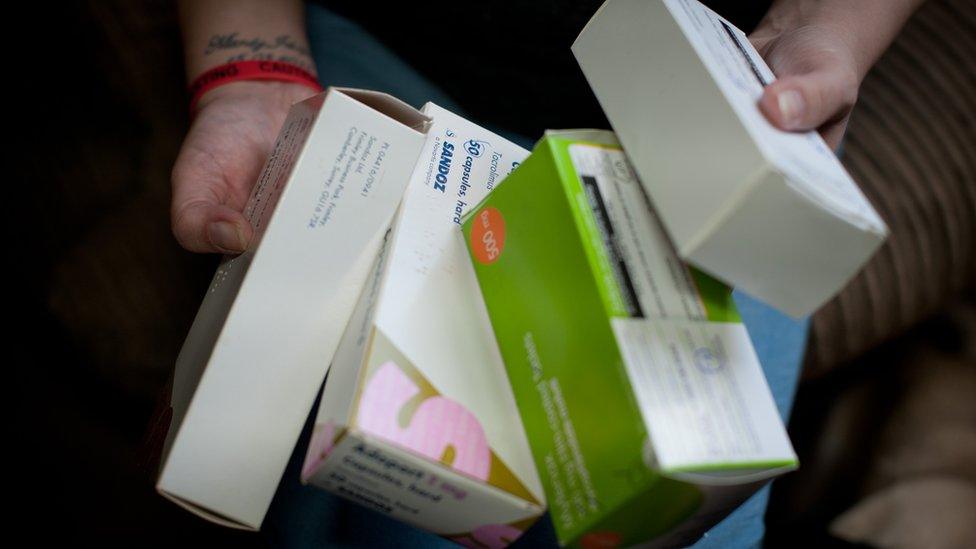
Mandy takes four anti-rejection drugs, aspirin, two cholesterol medications, an antibiotic and an antiviral
A few months after the transplant, Mandy is relieved to have come off dialysis. She now only needs to visit Leeds once a week for a check-up. She takes nine drugs for her kidneys, but this will soon drop to seven. Doctors have told Mandy her new kidney is currently functioning at 30% but is stable. A person with less than 10-15% kidney function needs to have treatment to boost it.
"I've started feeling better over the past couple of weeks. We go out and walk the dogs or visit family down the road. However, I can't visit someone if they are under the weather because the kidney is at a higher risk of failing in the first six months. A tummy bug could land me back in hospital."
John is hoping to go back to work next year and Mandy would like to find a job in a couple of years when Millie and Zac are both in secondary school. They have plans to visit Spain for a holiday when they can afford it.
"We haven't been away for four years because you have to stay close by when you are on the transplant list."
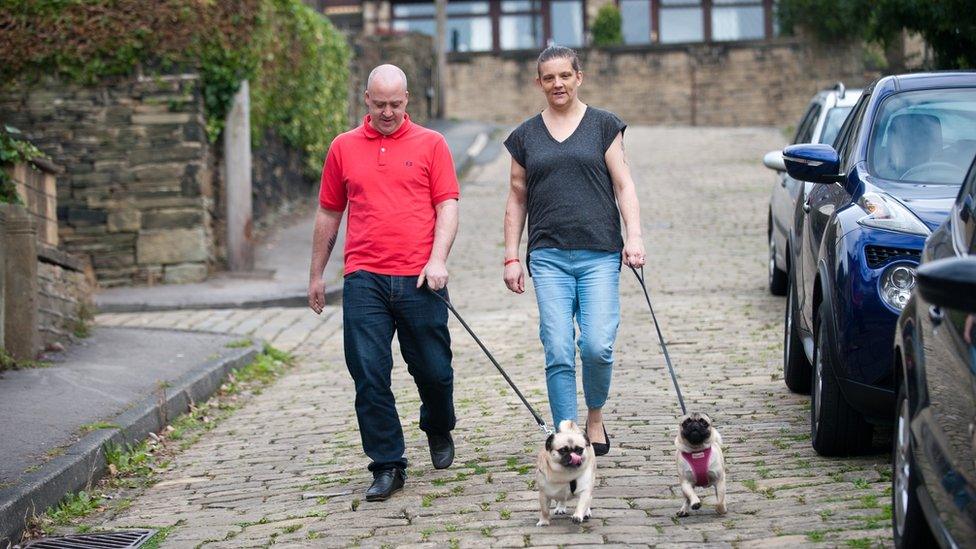
Mandy is slowly building up her strength after her transplant with the help of husband John
Mandy and John know that the whole family will be seeing plenty more of St James' Hospital in Leeds. The children see a specialist once a year and John plans to give up a kidney to one of them further down the road if he is a viable match.
"Millie and Zac know they have poorly kidneys, which means they need to drink a lot and go to the loo as soon as they need to," Mandy says.
"I just hold on to the hope that treatments are always improving. In the future they may develop healthy kidneys in labs."
Join the conversation - find us on Facebook, external, Instagram, external, Snapchat , externaland Twitter, external. Follow Claire Bates @batesybates, external
- Published17 November 2016
